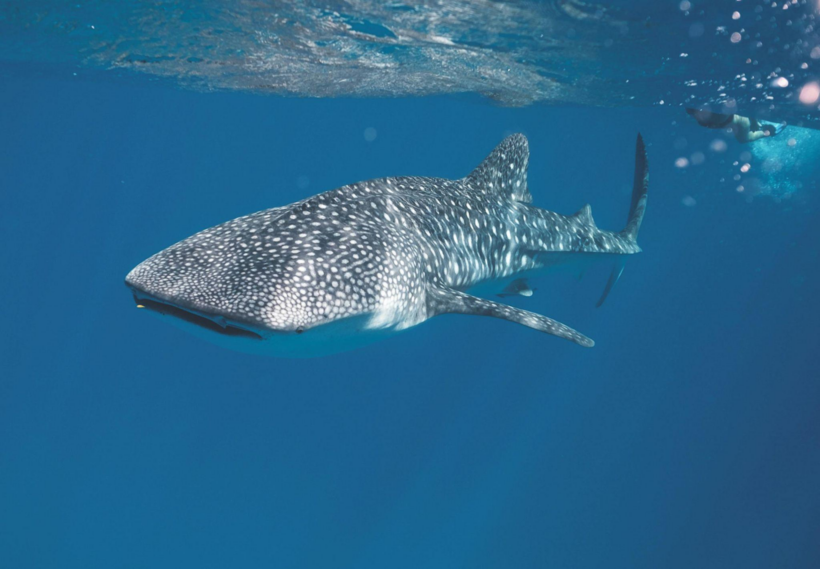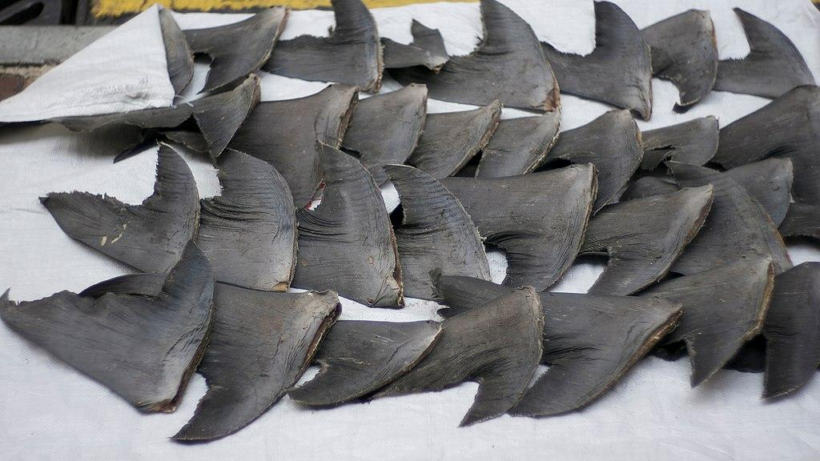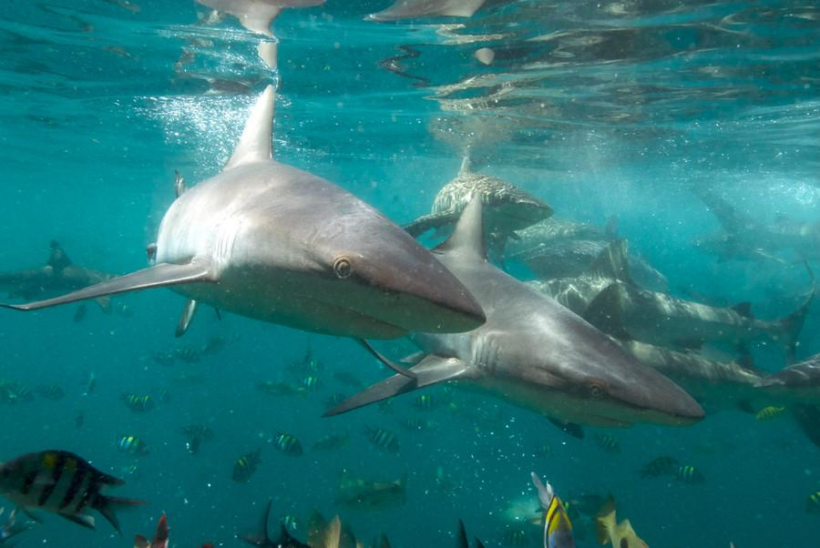by: Assaf Levy, BioDB
Every year on July 14th, we celebrate Shark Awareness Day. It is not just a tribute to one of nature’s most misunderstood creatures; it is a call to action. Sharks have cruised the oceans for over 450 million years, playing a vital role in keeping marine ecosystems healthy. But today, these apex predators find themselves under increasing pressure, with many species teetering on the brink of extinction.
Sharks: More Than Just Jaws
Hollywood might portray sharks as mindless killing machines, but this couldn’t be further from the truth. Sharks come in a staggering variety of shapes and sizes, from the filter-feeding giants like the whale shark to the sleek and speedy blue shark. They possess incredible senses, like electroreception, that allows them to detect electrical fields emitted by prey, and an amazing ability to navigate vast distances.
As apex predators, they help maintain the balance by regulating the populations of species below them in the food chain. This includes controlling the numbers of mid-level predators and helping to ensure species diversity among smaller fish and invertebrate populations. Their feeding habits help keep marine ecosystems healthy and functional. For instance, by preying on weak or sick individuals, sharks help prevent the spread of disease and ensure a healthier gene pool within the prey population. Their disappearance could have devastating consequences, leading to population explosions of prey species and ultimately, the collapse of entire ecosystems.

Credits: Pexels.
A Cause for Alarm: Why Are Sharks Endangered?
Despite their importance, many shark species are alarmingly close to extinction. According to the International Union for Conservation of Nature (IUCN), over one-third or 30% of shark species are either vulnerable, endangered or critically endangered. Some of the most threatened species include the Great Hammerhead, the Oceanic whitetip, and the Basking shark.
The main culprit behind this is overfishing. Driven by demand for shark fins (a prized ingredient in shark fin soup) and meat, millions of sharks are caught every year, often through unsustainable practices like finning, where fins are removed and the body discarded.
Another major threat is habitat loss. Sharks rely on healthy coral reefs and mangroves for breeding and feeding. However, these vital ecosystems are being degraded by pollution, climate change, and coastal development.

Fresh shark fins drying on the sidewalk at Hong Kong. Credits: Wikimedia | Cloneofsnake.
A Ray of Hope: Conservation Efforts Underway
The silver lining in the story of sharks is the growing awareness and effort towards their conservation. Governments, NGOs, and international bodies are working together to protect these magnificent creatures:
- Protected Areas: Many marine protected areas (MPAs) have been established to provide safe havens for sharks where fishing is restricted or banned.One notable example of a Marine Protected Area (MPA) that provides a safe haven for sharks is the Chagos Marine Reserve in the Indian Ocean. This reserve is one of the world’s largest marine protected areas and encompasses a variety of marine environments. It offers significant protection to various shark species, among other marine life, by enforcing strict regulations that limit fishing and other extractive activities.
Another example is the Jardines de la Reina National Park in Cuba, which has been particularly successful in conserving shark populations. This MPA provides a refuge for several species of sharks and has implemented strict no-take policies and eco-tourism guidelines that help maintain the health and biodiversity of its waters.
- Regulations and Bans on Shark Finning: Shark finning, the brutal practice of removing a shark’s fins and discarding the rest of the body, has prompted global action through stringent regulations and international cooperation. Many countries now enforce laws that require sharks to be landed with fins naturally attached, enhancing sustainable practices and compliance. Furthermore, international agreements like CITES (Convention on International Trade in Endangered Species of Wild Fauna and Flora) play a critical role in regulating the trade of endangered shark species to ensure their survival. These efforts are crucial in curbing unsustainable exploitation, promoting marine conservation, and supporting the recovery of shark populations worldwide.
- Sustainable Fishing Practices: Minimizing bycatch, the accidental capture of non-target species in fisheries, is crucial for preserving marine biodiversity, including sharks. Sustainable practices such as gear modification, implementing time and area closures, and employing bycatch reduction devices can significantly reduce unintended catches. Regulations that require fisheries to use circle hooks and turtle excluder devices (TEDs) help prevent the capture of non-target species like sharks and turtles. Additionally, real-time management of fisheries based on immediate data and promoting consumer awareness through eco-labeling, as mandated by organizations like the Marine Stewardship Council (MSC), can drive demand towards sustainably harvested seafood. These strategies not only help conserve marine species but also enhance the overall health of marine ecosystems and support the economic stability of fishing-dependent communities.

Credits: Flickr | Des Paroz.
This Shark Awareness Day, let’s not only admire the majestic Great Whites and the elusive deep-sea dwellers but also ignite a global commitment to safeguard their future. Every shark species plays a pivotal role in marine ecosystems, balancing marine life and ensuring the health of our oceans.
Today, we must transcend admiration and take decisive action. Let’s pledge to protect these magnificent creatures, understanding that saving sharks is fundamentally about preserving the entire marine ecosystem. By protecting sharks, we are not just saving individual species; we are investing in the health and sustainability of our entire ocean. Join us in this crucial mission—educate, advocate, and participate. Together, we can turn the tide for sharks and secure a vibrant future for our blue planet.






